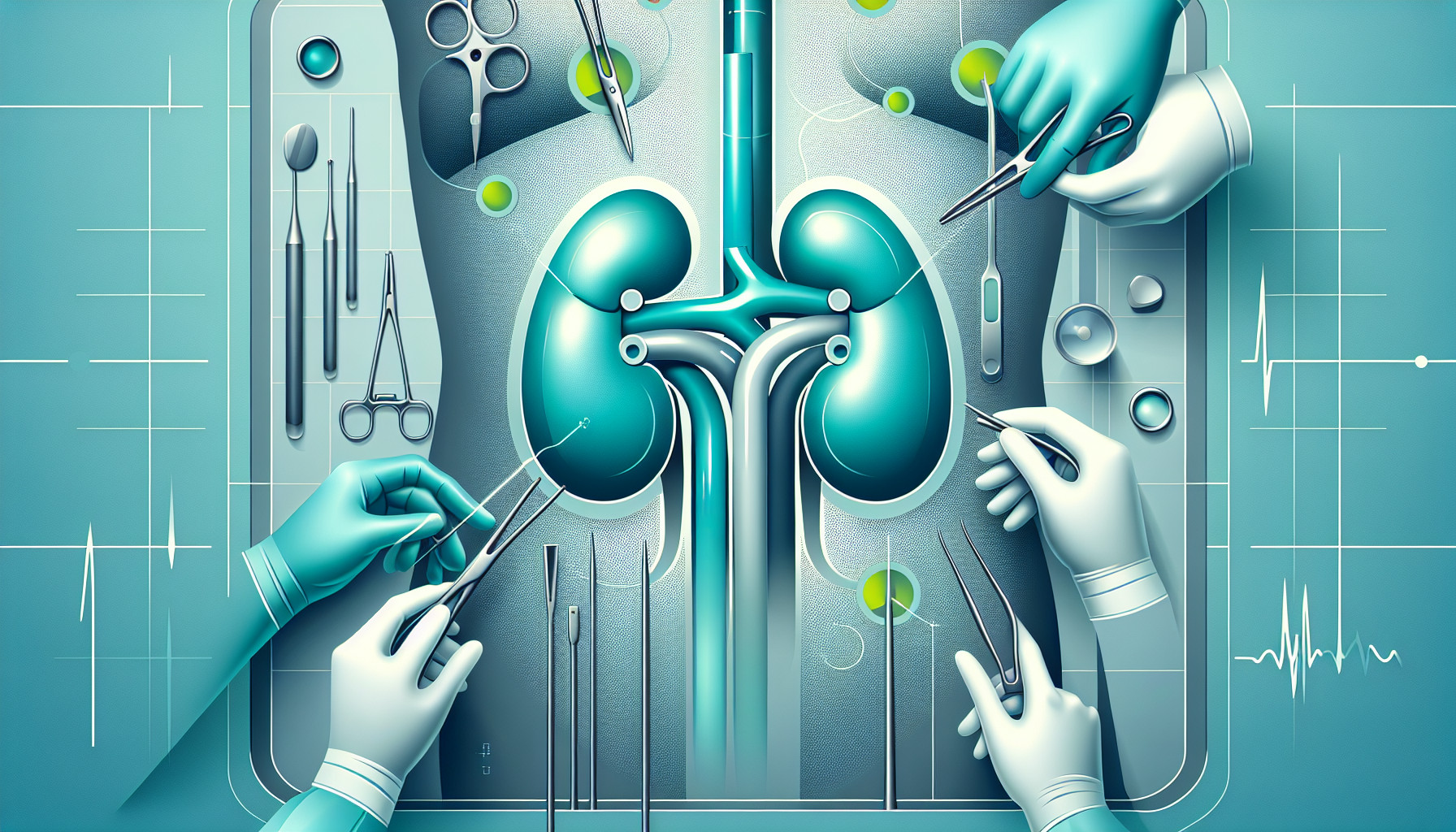Our Summary
This research paper is a detailed discussion and analysis on the topic of kidney transplantation. More specifically, it focuses on the function and potential dysfunction of a transplanted kidney (referred to as an ‘allograft’).
The paper discusses T cell mediated rejection, a type of rejection where immune cells attack the transplanted organ, and subclinical rejection, which is a rejection that doesn’t show any symptoms but can only be detected through tests.
It also talks about the importance of protocol biopsy, which is a procedure to remove a small piece of the kidney to examine it for rejection or disease.
The paper is written from a clinical research and practice viewpoint, and also includes a personal editorial perspective. It uses meta-analysis, a statistical technique that combines the results of multiple studies, to provide more accurate and reliable conclusions.
The paper is also focused on the field of nephrology, the branch of medicine concerned with the study of kidney function, and pathology/histopathology, which is the examination of tissues to study the manifestations of disease.
FAQs
- What is the focus of clinical research in the context of kidney transplantation?
- What does the term “rejection: T cell mediated” mean in the context of kidney transplants?
- What is the relevance of protocol biopsy in kidney transplantation?
Doctor’s Tip
One helpful tip a doctor might tell a patient about kidney transplant is to closely follow their prescribed medication regimen. This includes taking immunosuppressant medications as directed to prevent rejection of the transplanted kidney. It is important for patients to adhere to their medication schedule and report any concerning symptoms to their healthcare provider promptly.
Suitable For
Patients with end-stage renal disease who have exhausted all other treatment options, such as dialysis, are typically recommended for a kidney transplant. These patients may have conditions such as chronic kidney disease, diabetes, autoimmune disorders, or genetic kidney disorders that have led to irreversible damage to their kidneys. Additionally, patients who are experiencing complications from their current treatment, such as infections or cardiovascular issues, may also be considered for a kidney transplant. Ultimately, the decision to recommend a kidney transplant is based on a thorough evaluation of the patient’s medical history, overall health, and potential for a successful transplant outcome.
Timeline
Before kidney transplant:
- Patient is diagnosed with end-stage renal disease and undergoes evaluation for kidney transplant eligibility.
- Patient is placed on the kidney transplant waiting list and waits for a suitable donor match.
- Patient undergoes pre-transplant testing and evaluation to ensure they are healthy enough for surgery.
- Once a suitable donor is found, patient undergoes kidney transplant surgery.
After kidney transplant:
- Patient stays in the hospital for a few days to recover from surgery.
- Patient is closely monitored for signs of rejection and infection in the weeks following surgery.
- Patient takes immunosuppressant medications to prevent rejection of the transplanted kidney.
- Patient undergoes regular follow-up appointments and testing to monitor kidney function and overall health.
- Patient may experience complications such as infection, rejection, or side effects from medications.
- Over time, patient’s kidney function stabilizes and they are able to resume a more normal lifestyle with improved quality of life.
What to Ask Your Doctor
- Am I a candidate for a kidney transplant?
- What is the success rate of kidney transplants at this facility?
- How long is the waiting list for a donor kidney?
- What are the risks and complications associated with kidney transplant surgery?
- What is the recovery process like after a kidney transplant?
- What medications will I need to take after the transplant?
- How often will I need to come in for follow-up appointments after the transplant?
- What lifestyle changes will I need to make after the transplant?
- How long can I expect the transplanted kidney to last?
- What are the signs of rejection that I should watch out for?
Reference
Authors: Chandran S, Mannon RB. Journal: Am J Transplant. 2022 Mar;22(3):683-684. doi: 10.1111/ajt.16964. Epub 2022 Jan 28. PMID: 35073440
